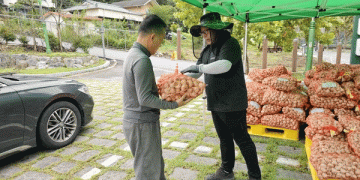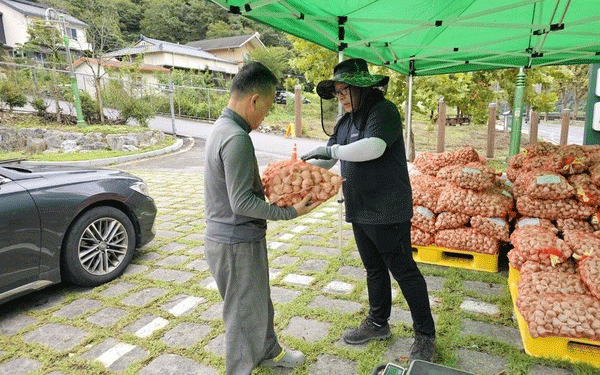In the high-stakes world of specialty crop production, long-term success is sown long before harvest—it begins with the genetic potential of the seed. Danyang County, a prominent garlic-growing region in South Korea, is demonstrating this principle with a strategic, system-wide intervention. By completing the distribution of 4,000 kg of elite seed stock to 112 local farms, the county is not merely supplying an input; it is engineering a more resilient and profitable agricultural ecosystem, addressing the chronic issue of seed degeneration that plagues garlic growers worldwide.
Confronting the Agronomic Achilles’ Heel: Seed Degeneration
Unlike grains, garlic is propagated vegetatively through cloves, meaning each new generation is a genetic clone of the previous one. This makes the crop particularly vulnerable to the accumulation of pathogens, including viruses, fungi, and bacteria. A study in the journal Frontiers in Plant Science highlighted that viral infections alone can suppress garlic yields by 20% to 50%, while also reducing bulb size and uniformity—key quality metrics. This phenomenon, known as seed degeneration, forces farmers into a costly cycle of saving and replanting progressively weaker stock.
Danyang’s program provides a direct escape from this cycle. The supplied “elite seed stock,” produced by a select group of three specialized farms, represents a pathogen-tested, genetically superior foundation. For the recipient farmers, this intervention saves the significant 2-3 years and the associated costs of trying to clean and multiply their own stock. This allows them to re-allocate resources toward optimal field management, secure in the knowledge that their most critical input is of the highest quality.
From Agronomy to Economics: The Business Case for Elite Seed
The financial logic for this public investment is compelling. Data from the Food and Agriculture Organization (FAO) and various national extension services consistently show that using certified, disease-free seed garlic can lead to yield increases of 25-35% compared to using degraded, farm-saved seed. For a 112-farm cohort, this represents a massive collective boost in productivity and revenue.
Furthermore, the county’s move to enact a formal ordinance governing seed production and supply is a critical step toward building a durable brand. “Danyang Garlic” can now be marketed not just as a product of a specific region, but as a product guaranteed by a rigorous quality assurance system that starts at the genetic level. This institutionalization of quality control—ensuring uniformity, size, and flavor—is what allows regional agricultural brands to command premium prices and build consumer trust that transcends seasonal market fluctuations.
Danyang County’s elite seed program is a powerful blueprint for how to foster a competitive agricultural sector. It moves beyond reactive subsidies to a proactive, systemic investment in the very foundation of crop production. By establishing a formalized, ordinance-backed pipeline for high-quality genetic material, the county is not just boosting yields for a single season. It is fortifying the entire value chain, enhancing the region’s brand equity, and providing farmers with the most critical tool for sustainable profitability. This model proves that true agricultural innovation begins not at harvest, but with a strategic commitment to the quality of the seed.































